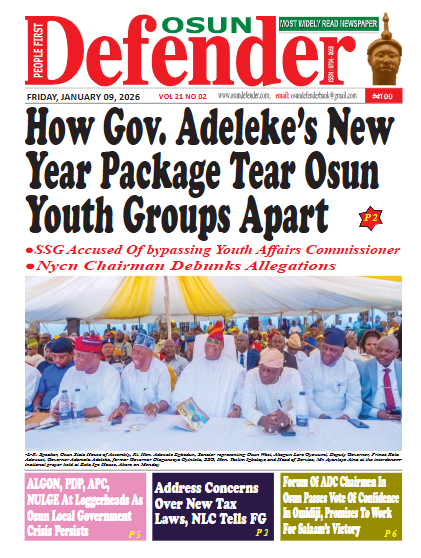Alleged N3.2bn Fraud: EFCC Files Amended 39 Charges Against Kalu

The EFCC on Wednesday, filed an amended 39 charges before a Federal High Court Lagos, against a former governor of Abia, Orji Uzor Kalu in an alleged N3.2 billion fraud.
The EFCC had on October 31, 2016, preferred a 34-count against Kalu and a former Commissioner for Finance in Abia, Ude Udeogo.
A Company, Slok Nig. Ltd, said to be owned by Kalu, was also joined in the charges.
The accused had pleaded not guilty to the charges and were granted bail.
The News Agency of Nigeria reports that at the last adjourned date on May 11, The EFCC had closed its case, but had informed the court that it intended to file an amended charge against the accused, to reflect further evidence.
The court had then adjourned the case, for the defence to open its defence.
On Wednesday, when the case was called, the prosecutor Mr Rotimi Jacobs (SAN), informed the court of an amended charge against the accused which he had filed this morning, adding that the prosecution was also served with a no case submission by each of the accused.
He said that he received the no case submission of first accused on May 28 at 5pm, while he received those of the second and third accused shortly before the court sat this morning.
In response, first defence counsel, Mr Awa Kalu (SAN), confirmed to the court that he had filed a no case submission on behalf of first accused but added that the accused had not been served with any amended charge by the prosecution.
Second and third defence counsel, Messrs Solo Akuma (SAN) and K. C Nwofo (SAN), also informed the court that they had filed no case submissions on behalf of the second and third accused, which were served on the prosecution this morning.
They also informed the court that neither the defence nor any of its legal team had seen or received copies of the said amended charge by the prosecution.
Specifically, Akuma drew the courts attention to the provisions of sections 216 of the Administration of Criminal Justice Act, which he argued does not allow the prosecution to amend a charge without leave of court.
He said that the prosecution ought to have applied by way of motion on notice for amendment, which would afford the defence an opportunity to be heard before the court exercises its discretion for or against the application.
When the prosecution opted to serve the charge on defence counsel in court, first defence counsel (Kalu) objected to service, on the grounds that the charge ought to be served personally on the accused and not on his counsel.
In his response, Jacobs reminded the court that at the last adjourned date, before he closed the case for the prosecution, he had informed the court of the amended charge.
He said that however, following “gentlemen agreements” between him and the defence, he had decided to close his case before bringing the amended charge.
(NAN)









